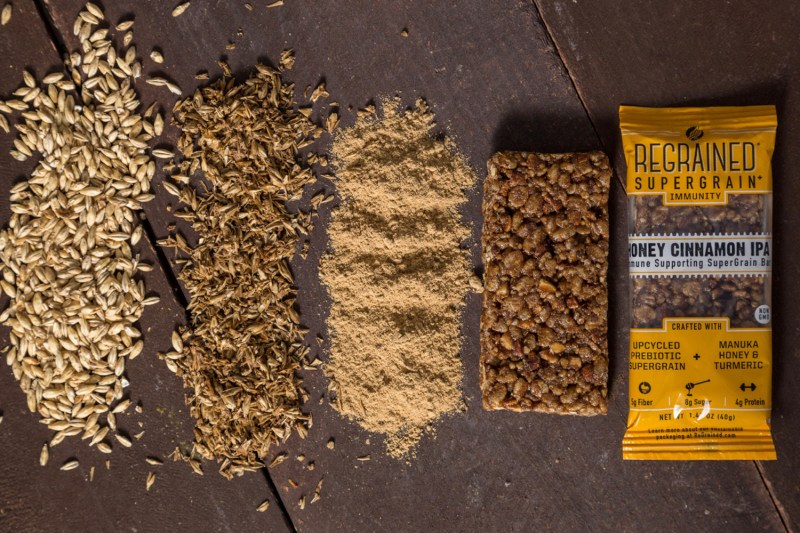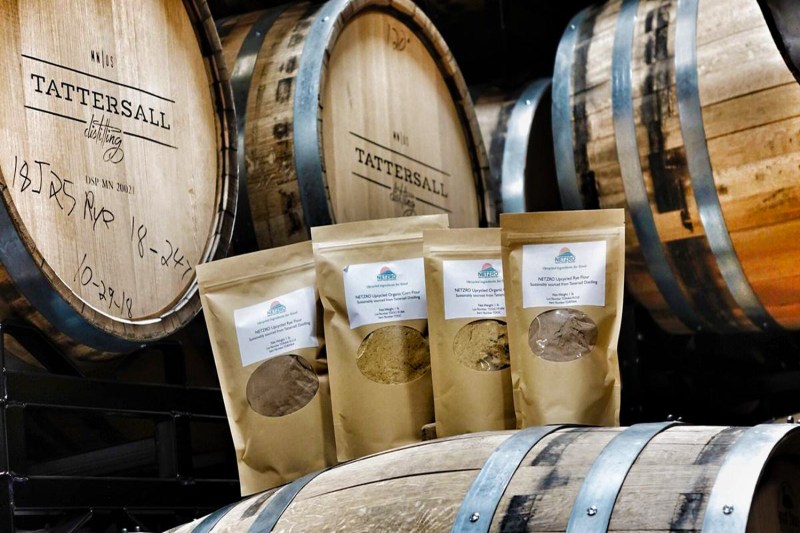
When there’s talk of real sustainability, closing the loop is a phrase often called into action. It’s a reference to growing ingredients in a way that recycles and reuses everything involved and created in the process. The result is waste-free and quite kind to the environment.
Farmers of all kinds are looking to close or at least tighten up their loops. Whether they’re raising wine grapes, hops, or potatoes, folks in agriculture are starting to think more like stewards of the land. When the land gives the grower so much, returning the favor seems more than rational.
But there’s more to closing the loop than just being kind to resident soils, minimizing inputs, and being cognizant of climate change. A lot of industries, like spirits and beer, yield a fair amount of byproducts. Throwing them in the waste pile or letting them idle creates a fracture in the loop. Now more than ever, producers are finding creative uses for their byproducts, both on their own and with the help of intrepid new companies.

In the Twin Cities, Netzro has taken advantage of the pandemic in unexpected ways. With more people baking at home, the women-run company is finding ways to deliver flour blends made with spent grain from breweries and distilleries to eager people mostly stuck at home.
Netzro is the first outfit of its kind in the nation to take on the spent grain used in the spirit-making process. It’s working with the used rye grains from Tattersall Distilling, converting the excess into edible forms of fiber and protein and working it into flour. And because of the brewing and distilling processes, the resulting flavor is distinctive and can impart some truly unique qualities to breads, pastries, and other baked goods.
Reusing spent grain is not entirely new, especially in craft beer. Brewers continue to use the stuff as animal feed. But oftentimes the supply of the byproduct is greater than the need. Netzro pounced on this knowledge, looking for a way to close the loop in a way that would make the leftovers not just animal friendly, but palate-pleasing and ever-useful to people. The company is billing the stuff as upcycled spent grain and blending it with organic wheat. And it’s healthy stuff, with a relatively low carb count.
In beer, some producers will do a second run with their spent wort, creating a second, lighter ale often called a small beer. Anchor in San Francisco is one such outfit, reviving a method that dates back to the formative days of beer-making. Breweries with a lot of resident animals, like Blackberry Farm in Tennessee, rarely end up with excess byproducts as there are so many mouths to feed on the estate.

Up in Alaska, the state’s biggest brewery is using its spent grain to generate power. In 2011, Alaskan Brewing introduced a boiler that utilizes spent grain as a fuel source of sorts, becoming fully operational in 2012. The company claimed to be the first on the planet to incorporate such technology and did so with some help from the USDA.
The federal organization reported in 2017 that the brewery has used 65% less fuel via its brewing process. The old grain provides the power needed to dry fresh grain in the brewery. And the brewery no longer has to schlep the spent grain by barge to Washington. It stays in house as a loop-closing energy source.
California-based ReGrained has been repurposing spent brewer’s grain into snacks for several years now. The founders got their idea while homebrewing during college, put off by the roughly one pound mass of grain leftover from every six-pack of beer crafted. Before long, a company was born, focused on milling the nutritional byproduct into flavored puffs and bars.
It’ll be interesting to see the loop-closing trend spread into the spirits world and beyond. So much of what we sip on requires extensive farming and that process is something we can always improve, in the name of not just sustainability, but giving back to a supremely generous planet.


